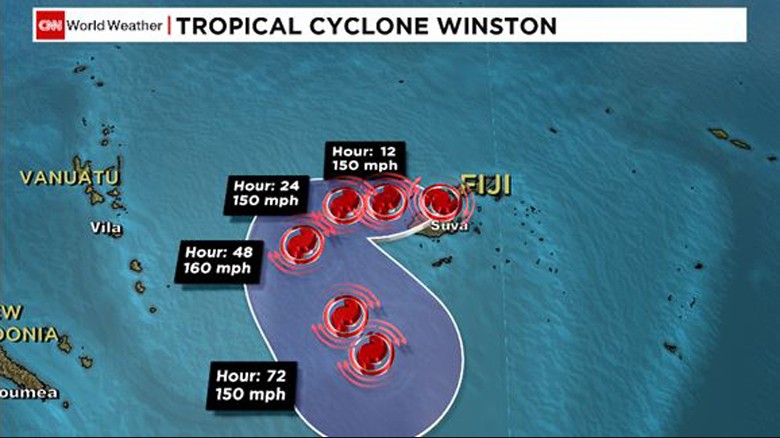 |
| Adele is unrivalled among today’s balladeers |
What makes the sound of Adele, Aretha and Mariah so spellbinding? Tracey Thorn explores the power of singing
In Jim Cartwright’s 1992 play The Rise and Fall of Little Voice, the lead character gets her nickname for her shyness. When Little Voice sings, she takes on the identities of Edith Piaf, Judy Garland and Shirley Bassey, singers with the biggest of big voices.
This transformation releases everything buried inside her, which is exactly what big voices do for us as listeners. Those singers who can go deeper and higher than anyone else, hit the big notes at full strength and hold them longer than anyone else – they amaze and impress us like Olympic athletes.
Adele, who is about to begin her first tour since 2011, currently belts out a ballad like no one else, but in an unfussy, unadorned style, proving that thought and discretion can still be integral to singing success.
 |
| Mariah Carey’s singing technique has inspired a whole generation of talent show contestants |
Meanwhile Mariah Carey, a different kind of big voice, will soon be singing live in the UK for the first time in 13 years. More about range than volume, she is famous for a five-octave span, which reaches up into the “whistle register”, higher even than falsetto.
This sometimes seems to me more like trick cycling than music, but there’s no denying how influential it became, and her trills and curlicues and melisma – using lots of notes to sing one single syllable – set the template for many pop singers who followed her, and are the norm for most contestants on The X Factor and The Voice.
But why do we love these big-voiced singers so much? In fact, why do we love all singers so much? Why do we pay them so much more attention than other performers, other musicians, devoting whole evenings of prime-time television to watching them compete with each other, singling them out from bands to give all the interviews, garner all the praise?
I have a theory that it’s because they do something we can all do, but better. As listeners, we share the same musical equipment as singers. We all have voices, we probably even sing a bit, even if just Happy Birthday. We come close to being able to do what singers can do, and so we see ourselves reflected in them.
Those singers with the great big voices? They are us, but bigger and better, maybe even physically so. Maria Callas was once described as having a mouth shaped like a Gothic cathedral. Ironically, of course, this thing we share with singers is what makes them so vulnerable to inward-looking anxieties, and they are a neurotic bunch (I am allowed to say this, being one of them).
 |
| Edith Piaf in 1960 |
It all comes from having to work with imperfect materials. Musicians buy the best instruments they can afford – Stradivarius violins, Steinway pianos – which have been designed and built for purpose. They then take infinite care of them, buying airline seats to keep their cellos out of the hold, keeping guitars in humidity-controlled environments. But singers have to use parts of their own anatomy – lungs, throat and vocal cords – which are really meant for breathing and swallowing and the avoidance of choking.
Every singer is like a one-man skiffle band, with tea-chest drums and rubber-band strings, trying to make something of nothing, trying to fashion an instrument out of what happens to be to hand, just waiting for the moment when it will fail. And fail it will, at some point.
Every time a singer catches a cold, or has an allergy, or just has to deal with the normal daily appearance of phlegm (I’m sorry, but you can’t talk about singing without talking about phlegm) the voice is compromised, and when you add the tiring effects of singing night after night on tour, it is not surprising that singers worry about voice loss.
A drummer with a cold can still do the gig, for the singer it means cancelling. So they become neurotic about their voices, and I suspect those who have big reputations, especially for their apparently superhuman voices, become even more anxious about failure.
We all love stories of celebrities and their unreasonable backstage demands. Mariah Carey, for instance, has something of a reputation for diva behaviour – and among the presumably apocryphal demands for the removal of certain-coloured M&Ms, you’ll find countless stories of singers who have asked for whole rooms to be redecorated, filled with flowers and candles, rugs and lamps, or temperature-controlled (Mariah apparently likes 75F, Beyoncé 78F).
But maybe these are signs of neurosis as much as celebrity ego: the insularity and obsessiveness common to singers. Stuck in the dressing room, not allowed to speak to anyone before a performance, sweating over your humidifier, watching the band swig Jack Daniels while you have a herbal tea, maybe you too would care what colour it was painted.
The real danger for most pop singers is that they are untrained, unlike classical singers who learn how to breathe and project, and so run terrible risks with the talent they have. Whitney Houston, who died in February 2012, sounded to me sublime and effortless when I first heard Saving All My Love for You.
Like many listeners I was wowed by the accuracy and punch of her singing, and the apparent ease. Critic Simon Frith described her “swinging through a ballad like a trapeze artist”, which conveys something of the panache of a great singer.
But it seems we were all taken in. The years took their toll on her voice, but it wasn’t just smoking and drugs that did the damage – it was the very way in which she sang. I’ve seen several vocal experts talk about the wrongness of her singing, the absence of technique, and it astonished me.
Straining too hard for high notes, she reached for them at full power, singing with the larynx high, tension in the neck and face. The fact that you could see her vibrato as she wobbled her jaw was apparently a dead giveaway to all that was wrong, pointing to the excessive effort which did the harm.
 |
| Adele performing at the Grammys in February |
Worryingly, Adele has already experienced vocal problems – a polyp and a haemorrhage, requiring surgery in 2011. She has said the treatment made her sound smoother, that she lost a bit of rasp, but gained a few extra notes and now takes better care of her voice.
Perhaps she’ll be fine, trouble isn’t inevitable. For proof that vocal longevity is possible, look no further than Aretha Franklin. Possessed of a voice big in every sense – a river-deep-mountain-high of a voice, influential, inspirational – she sang recently, aged 73, at an event to honour Carole King, and the footage of her performance of A Natural Woman took the internet by storm.
She walks on stage carrying a sequinned handbag, wearing a floor-length mink coat, plays the opening churchy piano chords, and within seconds has reduced both Carole King and Barack Obama to tears. As she begins to sing, you sense her astonishing power but even more than that, her control of that power, her understanding of the use of volume and tonal variation.
And so she paces herself, only starting to really soar on the middle eight, and as she does so the coat comes off and is thrown to the floor and the audience rises as one, literally uplifted by her singing. At that moment you see what a proper big voice can do, the transcendent and unifying effect it has on us, and how grateful we are, how much we need it.
But let’s be honest, not everyone is Aretha. Big singing has become the default style of pop singing on talent shows, which are dominated by belters, and here I think the appeal has more to do with danger than transcendence.
 |
| Dame Shirley Bassey |
There is something spine-tingling about listening to a newcomer attempt a huge song, like watching someone walk out on to the highest diving board when you don’t even know whether they can swim.
We are like the crowd at the circus, drawn to the possibility of disaster, with our fist in our wide-open mouth, wondering whether it will all go wrong, half-hoping it will, monsters that we are. And despite all that, sometimes I’d love to have a great big skyscraper of a voice, that could sing one of those gargantuan Sia tracks like Chandelier, and could be described, as Richard Burton once said of Elizabeth Taylor, as “too bloody much”.
I used to try to sing like Patti Smith and Siouxsie Sioux, until I realised that in fact I’m an intimate crooner, a whisper-in-your-ear kind of singer, with limited range and not much in the way of volume. Yet my singing is often liked and trusted by those who are suspicious of vibrato-fuelled screamers.
Listeners who suspect they are being hoodwinked by scale and grandeur sense an absence of fakery in my kind of singing, and the presence of complicated or subtle emotions. And so when I think I would like to exchange my voice for another’s I know what I risk losing, and I also know that I am falling into the trap of imagining any singer gets the same joy from their voice as the listener.
After all, I’d love to sing like Dusty Springfield, and she is quoted as saying: “All I know is that I have a distinctive voice I don’t particularly like listening to.” That’s a heartbreaking thought, and one sadly shared by many singers. I told you we’re a neurotic bunch. So I will never be Adele, but I will keep watching and listening to her, with my fingers crossed that her gorgeous sound survives the years and the rigours of touring.
And if, God forbid, her voice should fail her at any point, I’m hoping she’ll become some kind of television star. Watching her with Graham Norton, and then in the Carpool with James Corden, her humour self-deprecating, her cackle as huge and heartfelt as her singing, I thought: “If some sad day in the future, I couldn’t pay to hear Adele sing, I think I’d happily pay to hear her laugh.”








